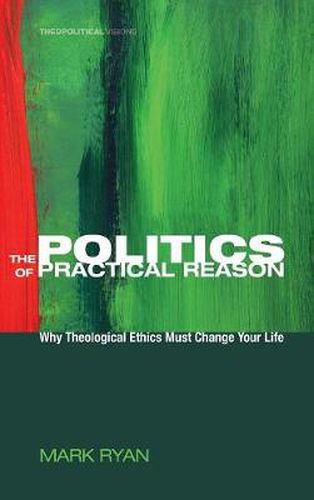Readings Newsletter
Become a Readings Member to make your shopping experience even easier.
Sign in or sign up for free!
You’re not far away from qualifying for FREE standard shipping within Australia
You’ve qualified for FREE standard shipping within Australia
The cart is loading…






This title is printed to order. This book may have been self-published. If so, we cannot guarantee the quality of the content. In the main most books will have gone through the editing process however some may not. We therefore suggest that you be aware of this before ordering this book. If in doubt check either the author or publisher’s details as we are unable to accept any returns unless they are faulty. Please contact us if you have any questions.
Ought we conceive of theological ethics as an activity that draws from a community’s vision of human goodness and that has implications for the kind of person each of us is to be? Or, can students of the discipline map the ethical implications of what Christians confess about God, themselves, and the world while remaining indifferent to these claims? Habituated by modern moral theories such as consequentialism and deontology, Mark Ryan argues, we too often assume that Christian ethics makes no claim on the character of its students and teachers. It is rather like yet another department store within the shopping mall of ideas and ideologies to which advanced education provides access. By arguing that theological ethics is an activity by nature political, the author endeavors to show us that to do Christian ethics is to be habituated into ways of talking and seeing that put us on a path toward the good. The author thus affirms the claim that theological ethics is a life-changing practice. But why is it so? This book endeavors to display a philosophical basis for this claim, by articulating the political character of practical reason. Through rigorous conversation with G. E. M. Anscombe, Charles Taylor, Stanley Hauerwas, Alasdair MacIntyre, and Jeffrey Stout, Ryan provides an account of practical reasoning that enables us to rightly conceive theological ethics as a discipline that ought to change our lives.
$9.00 standard shipping within Australia
FREE standard shipping within Australia for orders over $100.00
Express & International shipping calculated at checkout
This title is printed to order. This book may have been self-published. If so, we cannot guarantee the quality of the content. In the main most books will have gone through the editing process however some may not. We therefore suggest that you be aware of this before ordering this book. If in doubt check either the author or publisher’s details as we are unable to accept any returns unless they are faulty. Please contact us if you have any questions.
Ought we conceive of theological ethics as an activity that draws from a community’s vision of human goodness and that has implications for the kind of person each of us is to be? Or, can students of the discipline map the ethical implications of what Christians confess about God, themselves, and the world while remaining indifferent to these claims? Habituated by modern moral theories such as consequentialism and deontology, Mark Ryan argues, we too often assume that Christian ethics makes no claim on the character of its students and teachers. It is rather like yet another department store within the shopping mall of ideas and ideologies to which advanced education provides access. By arguing that theological ethics is an activity by nature political, the author endeavors to show us that to do Christian ethics is to be habituated into ways of talking and seeing that put us on a path toward the good. The author thus affirms the claim that theological ethics is a life-changing practice. But why is it so? This book endeavors to display a philosophical basis for this claim, by articulating the political character of practical reason. Through rigorous conversation with G. E. M. Anscombe, Charles Taylor, Stanley Hauerwas, Alasdair MacIntyre, and Jeffrey Stout, Ryan provides an account of practical reasoning that enables us to rightly conceive theological ethics as a discipline that ought to change our lives.